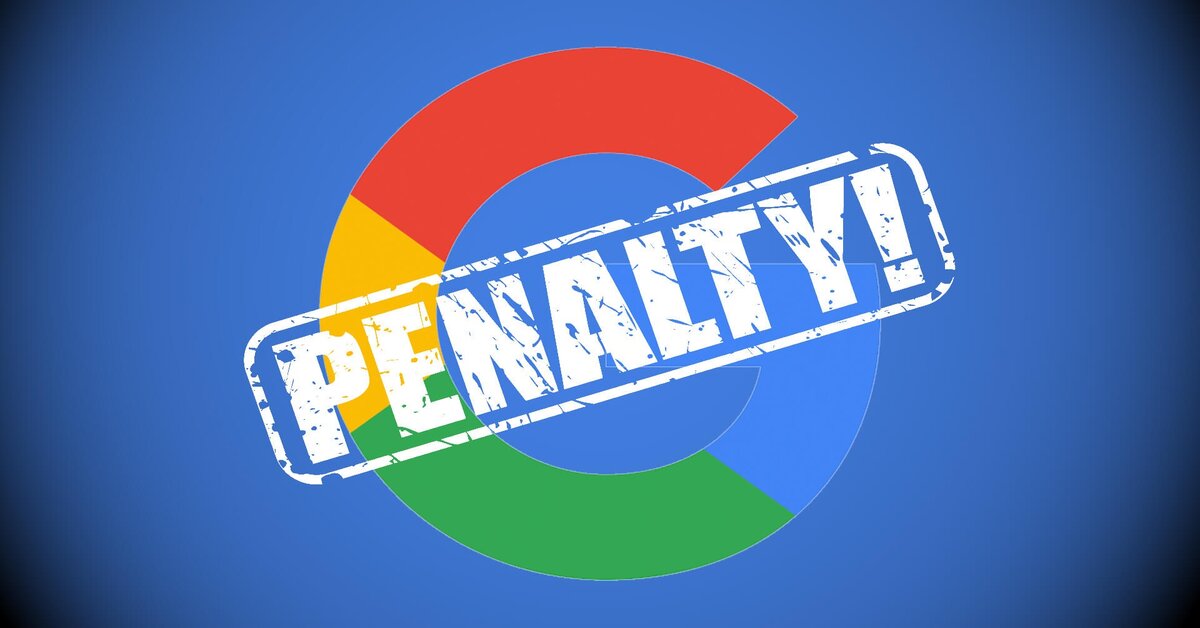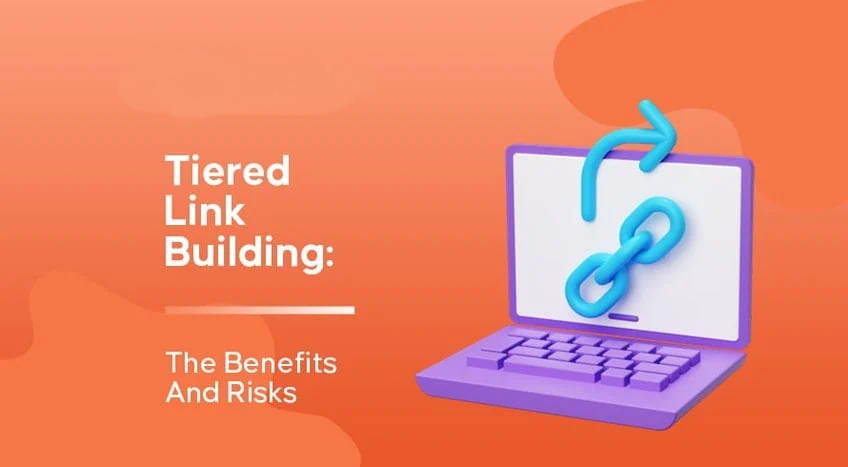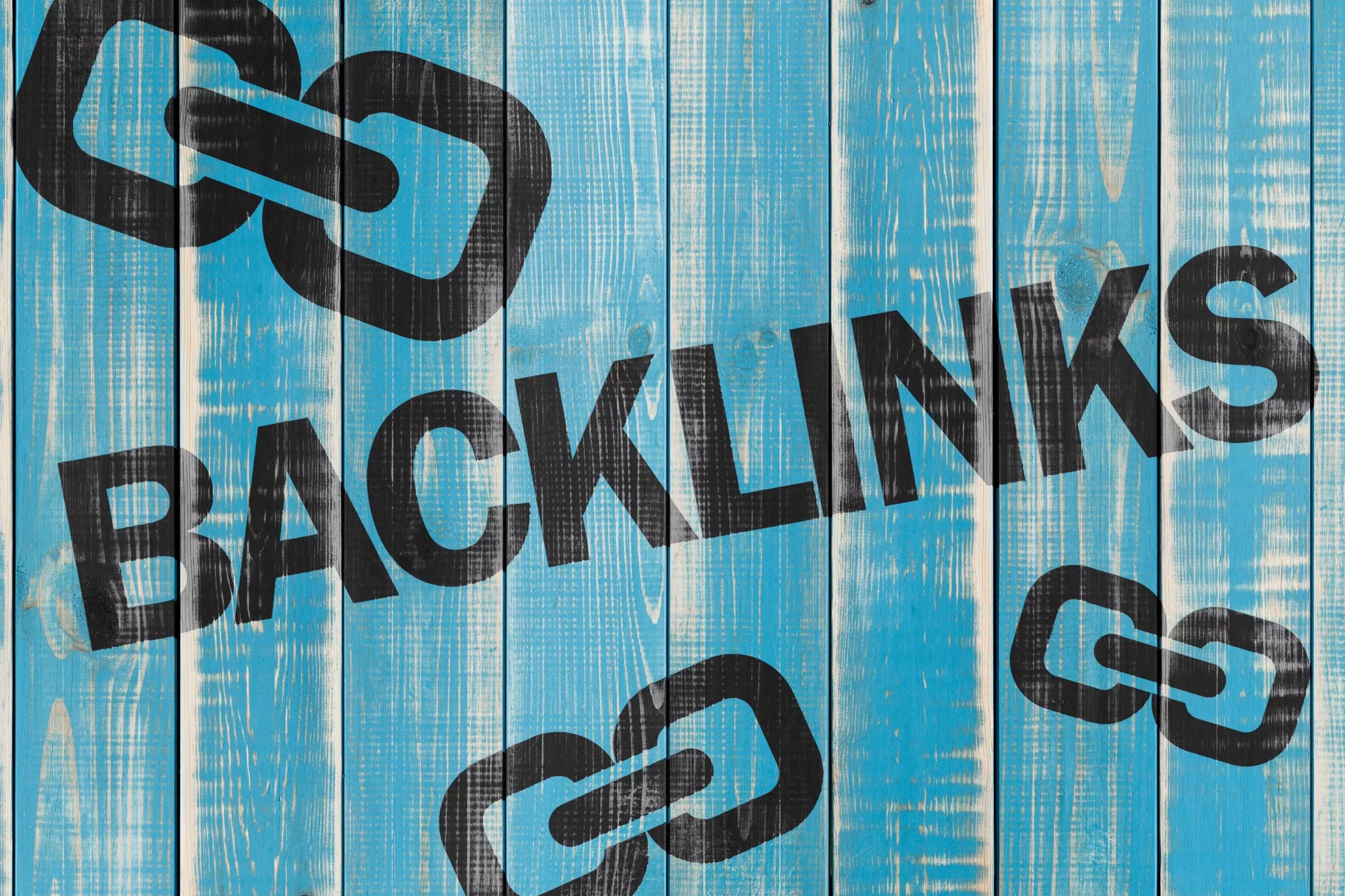Will Google Penalize You for Link Exchange in 2024?
You must already know how indispensable link exchange is for your website traffic. However, doing it right is very important because it will help you avoid harsh penalties.
That begs the question: Will I be penalized if I use link exchange in SEO as part of my outreach link building strategy?
You might not know that you are not the only person asking this question.
Let me explain why?
When a website links to your website, search algorithms consider you an authority in your industry. With this authority, you get better search rankings.
According to Search Engine Land, Google’s page ranking algorithm considers links one of the top three search ranking factors.

Do you see why probably all website owners have thought about or are thinking about a link exchange? But, will it be a good link-building strategy for you?
In this article, I will give you an answer to this question based on research and statistics.
After reading this post, you’ll know exactly how to leverage a backlink exchange strategy if you want to.
But, before I jump into the details, let’s talk about what a link exchange is.
What is a Link Exchange?
Link exchange is the practice of placing another site link on yours, and that website does the same in return.
Some people refer to it as reciprocal linking or two-way link exchange.
There are situations where two websites link to each other without any prior arrangement. That’s usually called natural reciprocal link exchange.
Practically, reciprocal linking and link exchange are used interchangeably. It all refers to an arrangement between two or more websites to link to each other.
But there is more than one strategy for link exchange, for example, a three-way link exchange agreement. This refers to a situation wherein site A agrees to link to site B , site B links to site C, and site C links to site A.
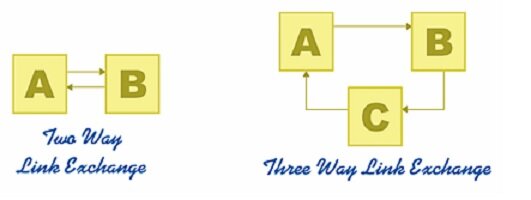
It’s just a smart strategy to outsmart Google’s algorithms.
The important question is: Is it safe?
Keep reading to find out.
Is Link Exchange Safe Strategy for SEO?
You’ll discover in Google’s link scheme answer page that;
Google may penalize any link that’s intended to manipulate PageRank or a website’s ranking on search results pages. They will consider any such scheme as a violation of webmaster guidelines. This includes any links to your site or links going out of your site.
Sounds pretty harsh and straightforward, right?
But, take a look at that again—-notice the use of “may”?
That’s to tell you there’s room to exploit. Don’t mean to sound all lawyerly here, but if they used “will”, that’s a different ball game.
Also, in the same Google’s Webmaster Guidelines, they highlight examples of link schemes that’ll trigger penalties on your website. One stands out for me and is highlighted in the following image.

The use of “Excessive” here gives the impression that Google is aware of the tendency for sites to link to each other, but they discourage excessive link exchange.
Remember when I talked about natural reciprocal linking, I think Google uses “Excessive” to leave a “gap” not to penalize natural reciprocal linking.
However, this seems to have opened the floodgates. So many SEO experts and website owners now want to profit from this by doing link exchange.
Yes, you could exchange links, but there’s a fine line between knowing when it’s safe and when it isn’t.
That’s why you need to know when Google may consider your links as a scheme to outsmart webmaster guidelines.
When Can Link Exchange Be Penalized by Google?
As you must have already read in the latter section, Google will penalize excessive link exchange with the goal of gaming webmaster guidelines.
The pressing question is; at what point will Google consider your links exchange as spam?
John Mueller made the position of Google very clear in a discussion on how its algorithms look at link exchange.
Check out this excerpt of his interview.
When asked to what extent it’d be permissible by Google to exchange links and avoid considered spam —This was his reply:
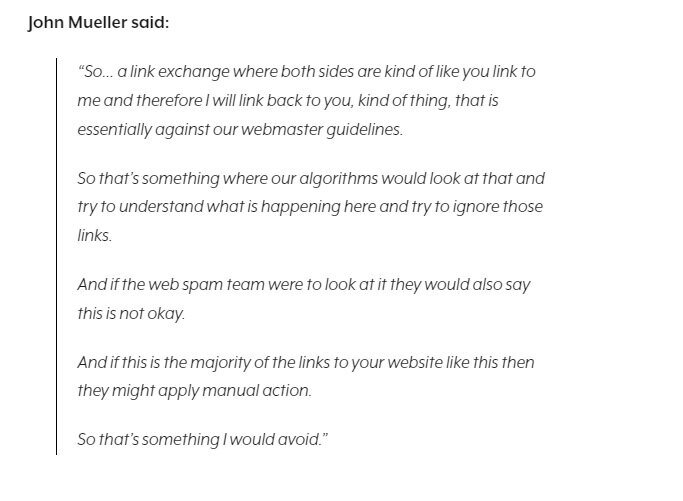
He was further asked about the impact even if the websites are topically relevant.
Check out his reply:

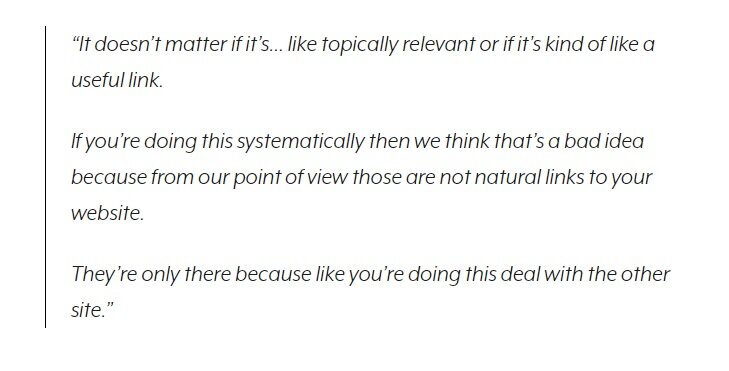
You notice he also talked about using link exchange systematically, even if the websites are topically related. It’s a bad idea altogether.
It all boils down to the same reference Google made in the webmaster guidelines. You’ll be penalized if your links are excessive or aimed at gaming the system.
Interestingly, I’ve never seen a website punished for link exchange in all my years as a link-building strategist.
It means those doing it must be doing something right. But you’ll never know unless you try.
By now you must be dying to know when you can safely do a link exchange, right?
Let’s dive right into that.
When Is It Perfect for Doing a Link Exchange?
The best way to exchange links is through a natural reciprocal exchange. I won’t advise you to seek people looking to exchange links systematically.
You might find yourself caught in a spider web with them even if you got just one link. So, it’s best to avoid this altogether.
What I recommend you should do be generous to other websites and bloggers. Don’t be stingy with links. Avoid copying content from a blog or website without at least linking back to them.
If the content is genuinely relevant, your audience will find it that way. Just place that link on your post.
You’ll be amazed that most of the websites you link to in your content will link back to you. Consequently, Google will not penalize you because those links will be more reciprocal than systematic.
However, if you plan on exchanging links systematically, do me a favor and try cross-linking. If you do link exchange directly, you’ll easily violate webmaster guidelines. You’ll be penalized. Quite easily, I must add.
3 Pro Tips for Link Exchange
1. Please don’t make it your only backlink strategy. I know how difficult link building can be, but if you turn to link exchange as your primary link building strategy, it will end very badly for you.
2. Try to exchange links with trustworthy sites or blogs with whom you already have a relationship. This will ensure you can track their links and yours to avoid any backlash. Also, ensure you track the number of links of your competitors so that yours never becomes excessive. Best not to draw attention.
3. Track the total of your external links. Make sure those you get from link exchange never go above those naturally. That’ll save you a lot of trouble.
How Can You Find Link Exchange Opportunities?
You can find link exchange opportunities in private groups on Facebook and Slack. It’s best to leverage these groups because trust is already established in most of them.
All you need to do is to join the groups and leave a message about your site, and the other members will get back to you if they found your site relevant. Based on the fact that there are usually numerous trustworthy group members, you won’t have an issue with cross-linking.
The only thing you must check is whether the sites you link to are relevant to your niche. It’d be useless to get a link from non-relevant site and it won’t be helpful for your site’s SEO.
That said, I believe you know everything there is to know about link exchange. You are now set to explore the option you feel best suits you.
Conclusion
Excessive link exchange could trigger some adverse results. You may be penalized by Google and lose your web page rankings entirely.
Nevertheless, there are proven ways to do reciprocal linking. All you need to do is be diligent if you want to try link exchange or avoid it totally.
The decision is yours.
Have you had any negative or positive experiences with link exchange?
Share your experiences below.


